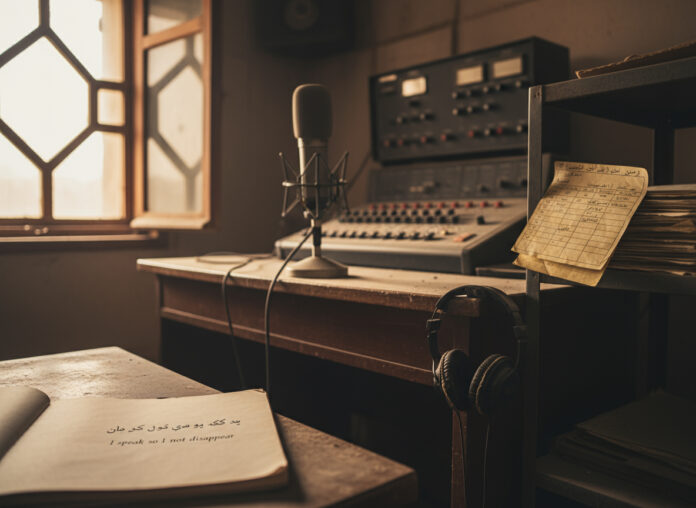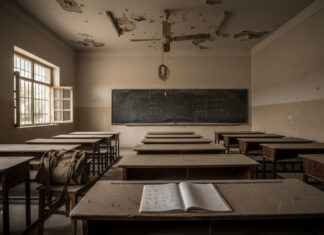Name: Zarmina
Region: Khost Province
I was a student of Pashto literature at Khost University when the Taliban closed the doors of the universities. During the Republic era, several radio stations operated in Khost province. These stations played a vital role in raising public awareness and also broadcasted entertainment, social, and cultural programs. Even during the Republic, the Taliban had shut down some of these stations, as Khost had long been an insecure province. Toward the end, despite the public’s strong interest in radio, several stations, including Radio Zhwandoon, were closed.
Especially after schools were shut down, we girls would sometimes call into entertainment programs using pseudonyms. As a relatively aware and young generation, we wanted to maintain some presence in society. So we tried to participate anonymously calling in to discuss social issues or simply to dedicate a song to someone we cared about, whether a close friend, classmate, or someone else meaningful to us. Some girls even found joy in hearing the voices and stories of others. Many dreamed of one day working in radio themselves, answering questions and helping others. In such circumstances, even hearing a voice without a face was comforting for us girls who had been stripped of all our rights.
But everything changed after the Taliban returned. When they entered Khost, the first thing they did was close the schools. They converted the Department of Women’s Affairs into a police district. At tribal gatherings, they mocked our fathers, asking how they had become so dishonorable as to allow a women’s department in a Pashtun province. Later, the Taliban issued decrees restricting the media. We no longer dared to call into radio stations. Music was banned, and stations were forced to broadcast Taliban chants and religious hymns. Even health programs for women were narrated by male reporters.
Radio Zhwandoon was one of the most popular media outlets in Khost, known for its engaging programs. Unfortunately, it was shut down simply because one of its programs had background music.
Now, people especially girls have no form of entertainment or meaningful engagement. Many girls are suffering from psychological issues. Some, out of boredom and lack of direction, have entered inappropriate relationships through Facebook and WhatsApp, even with Taliban members. Others have been forced into both voluntary and involuntary marriages.
Despite everything, I try to stay in touch with my friends and classmates. I offer them small pieces of advice through reading and discussion. I try to give hope to those around me and encourage them to believe in a better future. I truly believe these dark days will end, and we will return to brighter times. That is why I want to pass this hope on to others.










